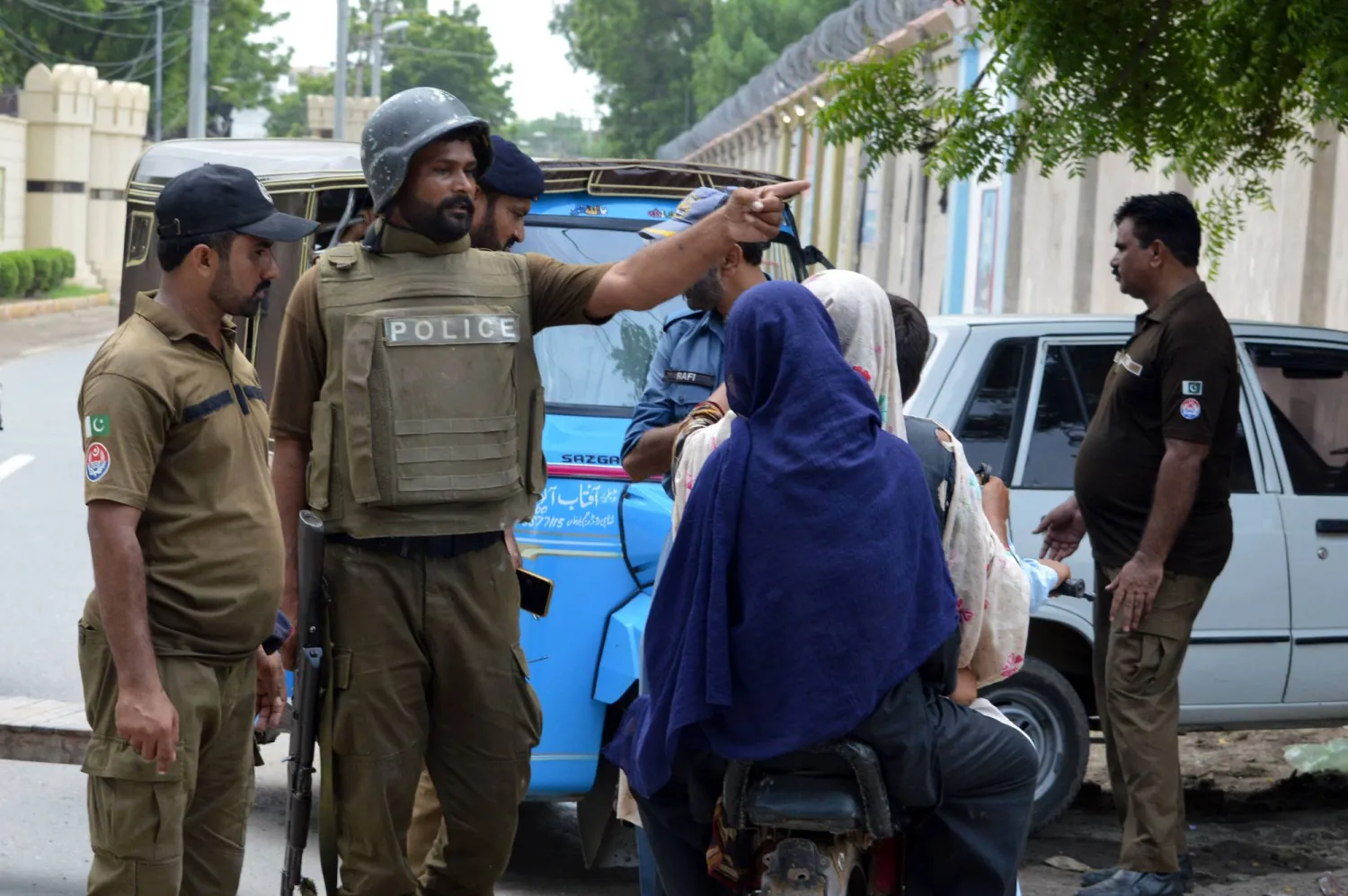Separatist militants attacked police stations, railway lines, and vehicles on highways in Pakistan's province of Balochistan, killing at least 39 people, officials said on Monday, in the most widespread assault by ethnic insurgents in years.
Militants have fought a decades-long ethnic insurgency to demand the secession of the resource-rich southwestern province, home to a number of major China-led projects including a strategic port and a gold and copper mine.
The largest of the attacks targeted vehicles from buses to goods trucks on a major highway, killing at least 23 people, officials said, with ten vehicles set ablaze.
A rail line between Pakistan and Iran and a railway bridge linking Quetta, the provincial capital, to the rest of the country were also hit with explosives during the attacks, railways official Muhammad Kashif said, adding that rail traffic with Quetta had been suspended, Reuters said.
Police said they had found six bodies that have yet to be identified, near the attack on the railway bridge.
Militants also targeted police and security stations in the sprawling province, officials said, one of which killed at least 10 people.
Militant group the Baloch Liberation Army (BLA) took responsibility in a statement emailed to journalists that claimed many more attacks, including one on a major paramilitary base, though Pakistani authorities have yet to confirm these.
PASSENGERS KILLED
On Sunday night, armed men blocked a highway in Balochistan, Pakistan's largest province, marched passengers off the vehicles, and shot them after checking their identity cards, a senior superintendent of police, Ayub Achakzai, told Reuters.
"The armed men also not only killed passengers but also killed the drivers of trucks carrying coal," said Hameed Zahir, the deputy commissioner of the area, adding that at least 10 trucks had been set on fire after their drivers were killed.
Militants have targeted workers from the eastern province of Punjab whom they see as exploiting their resources. In the past, they have also targeted Chinese interests and citizens operating in the province.
China runs the strategic deepwater port of Gawadar in Balochistan's south, as well as a gold and copper mine in the west.
The BLA said its fighters had targeted military personnel traveling in civilian clothes, who were shot after being identified.
Pakistan's interior ministry said the dead were innocent citizens.
STATIONS ATTACKED
Six security personnel, three civilians and one tribal elder made up the ten killed in clashes with armed militants who stormed a station of the Balochistan Levies in the central district of Kalat, police official Dostain Khan Dashti said.
Officials said police stations had also been attacked in the two southern coastal towns, but the toll had yet to be confirmed.
The office of Prime Minister Shehbaz Sharif condemned the attacks in a statement, vowing that security forces would retaliate and bring those responsible to justice.
Balochistan, which borders both Iran and Afghanistan, is Pakistan's largest province by size, but the least populated and it remains largely underdeveloped, with high levels of poverty.
Militant Attacks in Pakistan's Balochistan Kill 39

Pakistani security officials stand guard following an attack by criminal gangs, in Rahim Yar Khan district, Punjab province, Pakistan, 23 August 2024. EPA/FAISAL KAREEM

Militant Attacks in Pakistan's Balochistan Kill 39

Pakistani security officials stand guard following an attack by criminal gangs, in Rahim Yar Khan district, Punjab province, Pakistan, 23 August 2024. EPA/FAISAL KAREEM
لم تشترك بعد
انشئ حساباً خاصاً بك لتحصل على أخبار مخصصة لك ولتتمتع بخاصية حفظ المقالات وتتلقى نشراتنا البريدية المتنوعة







